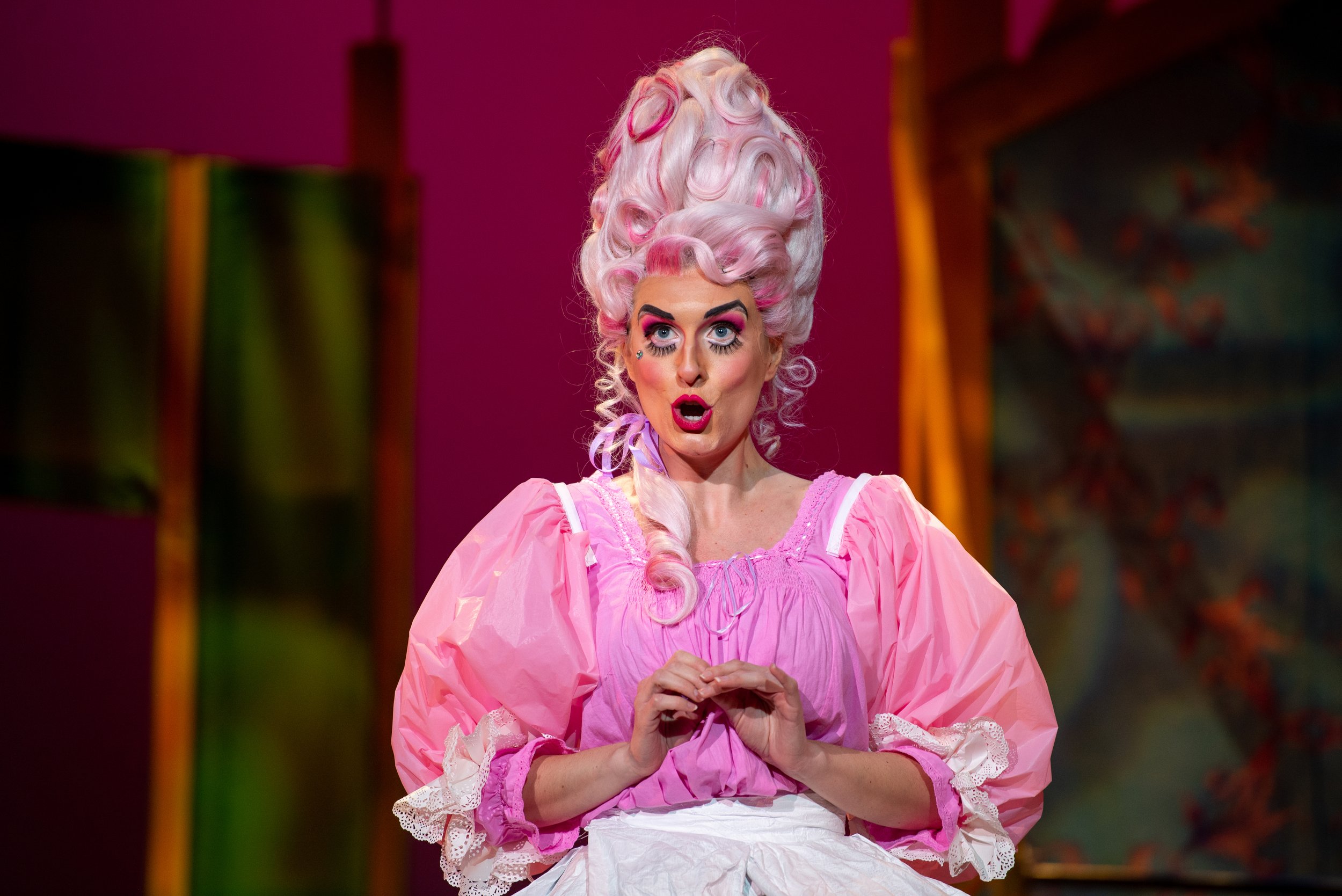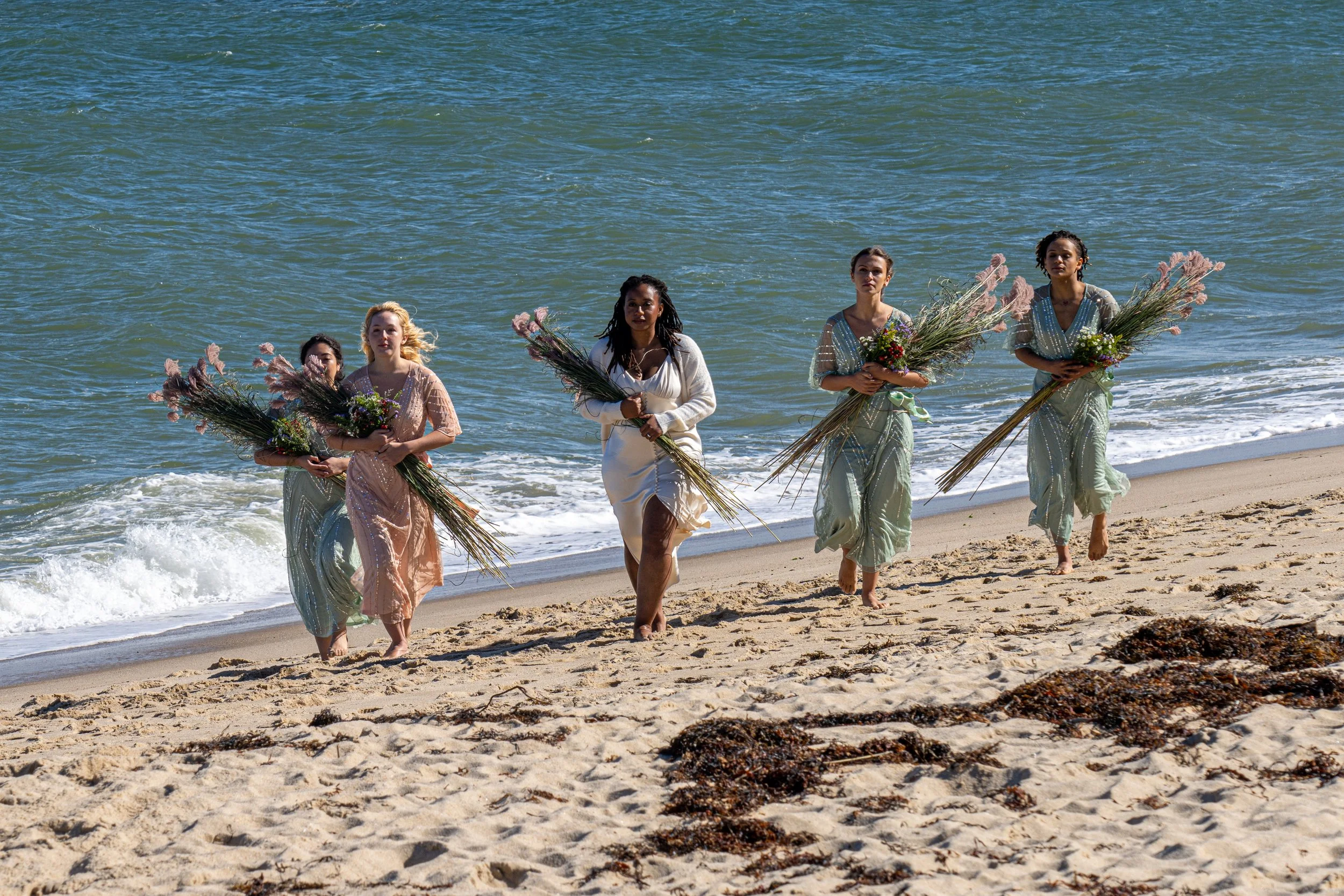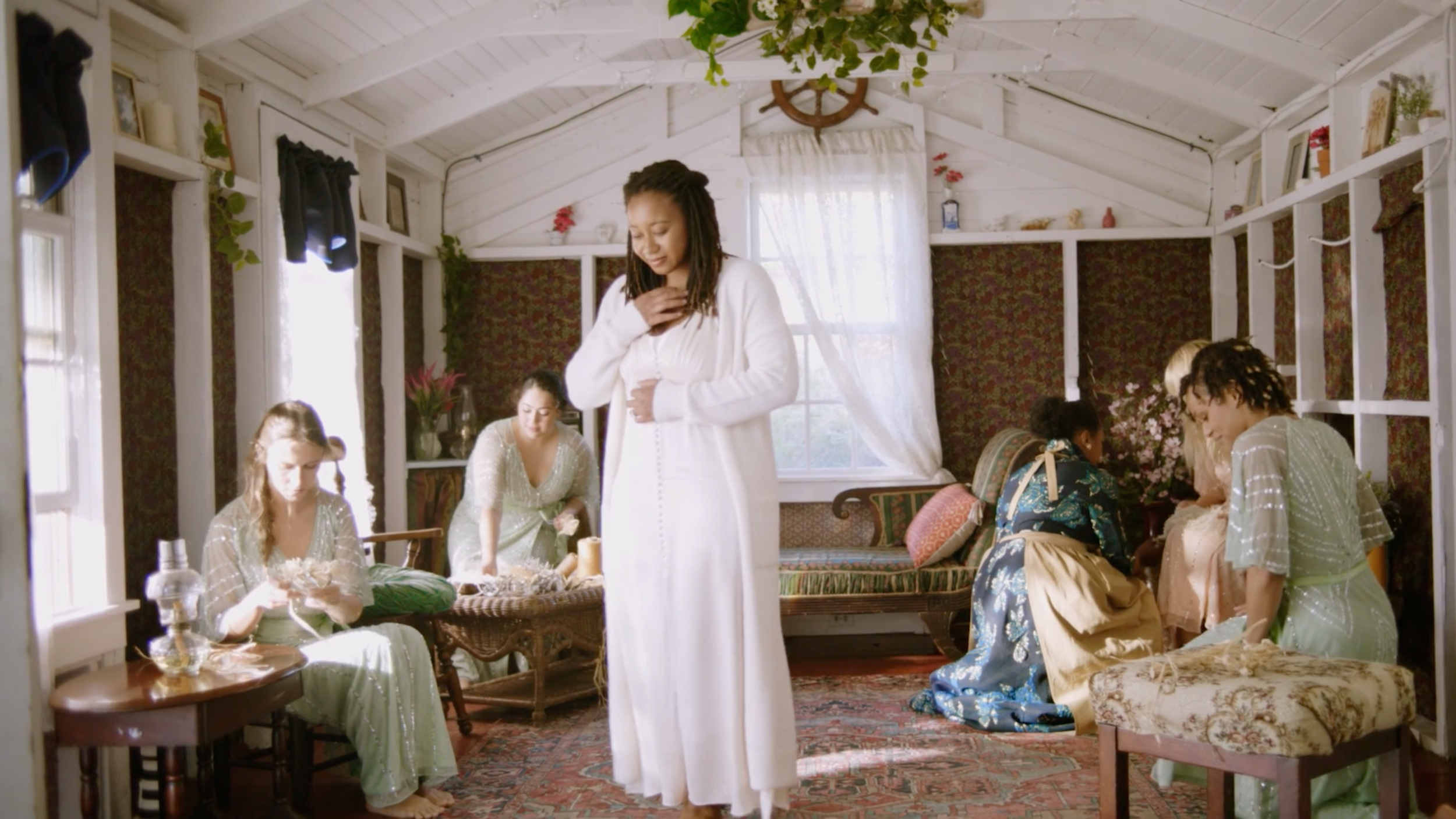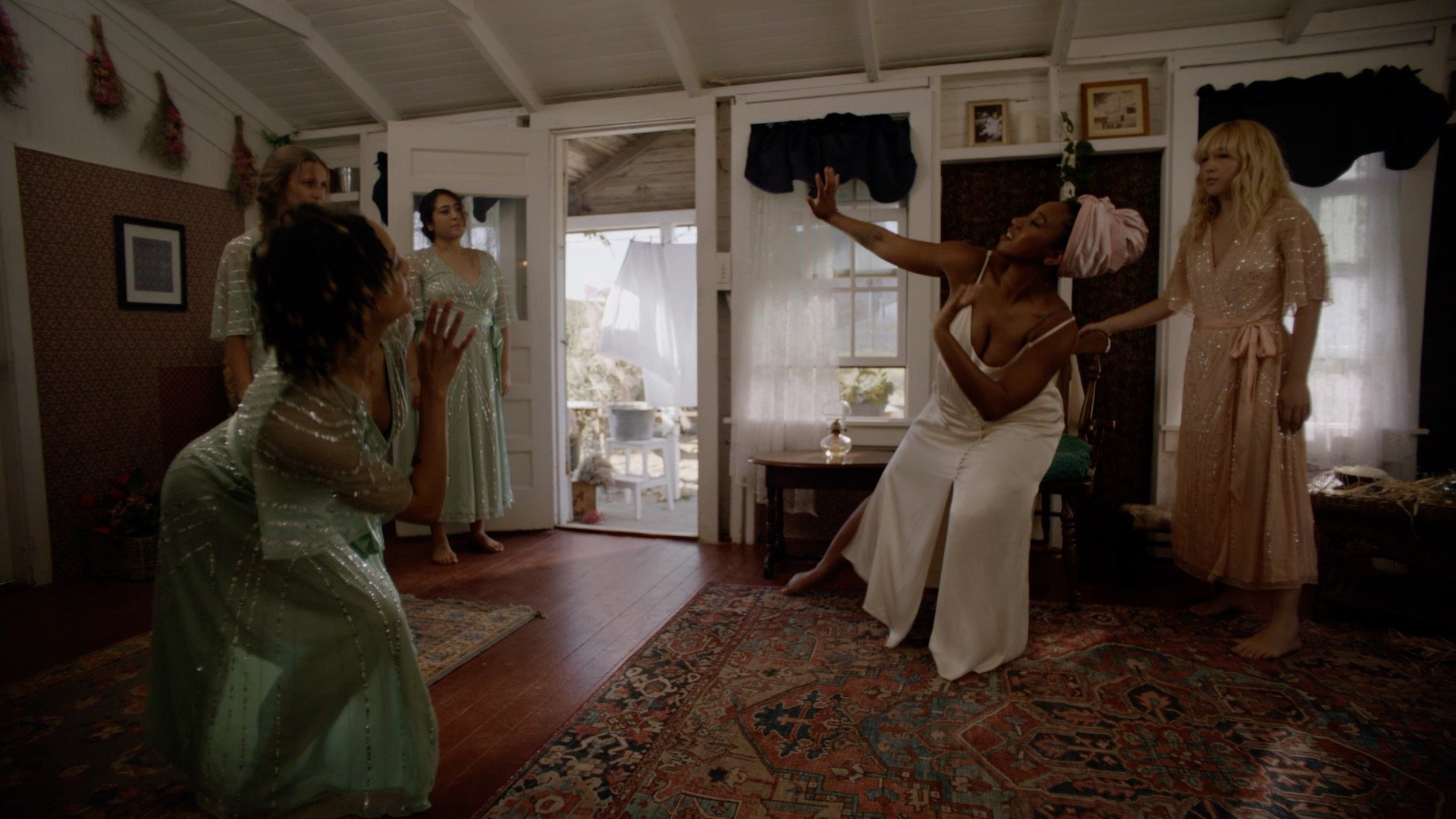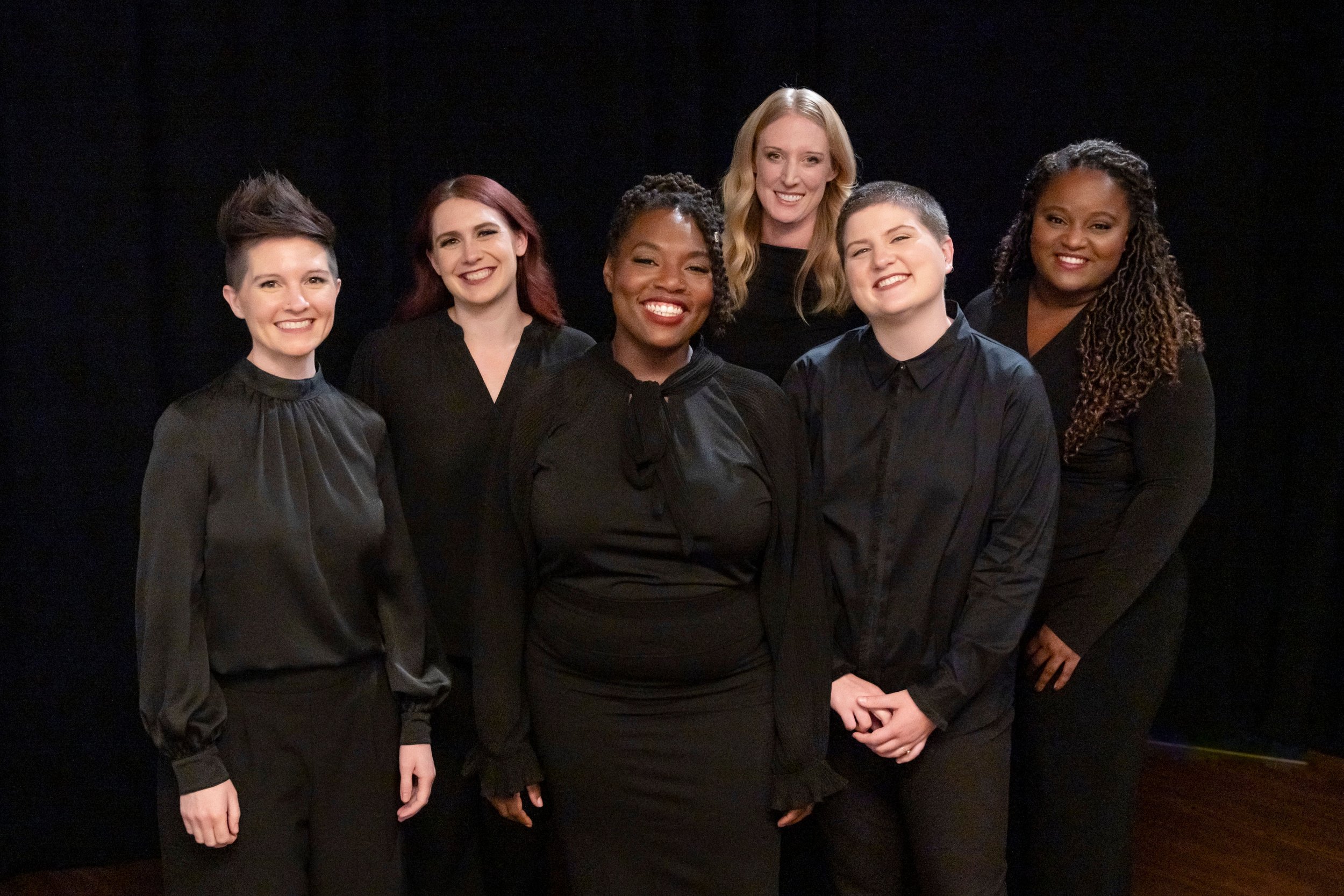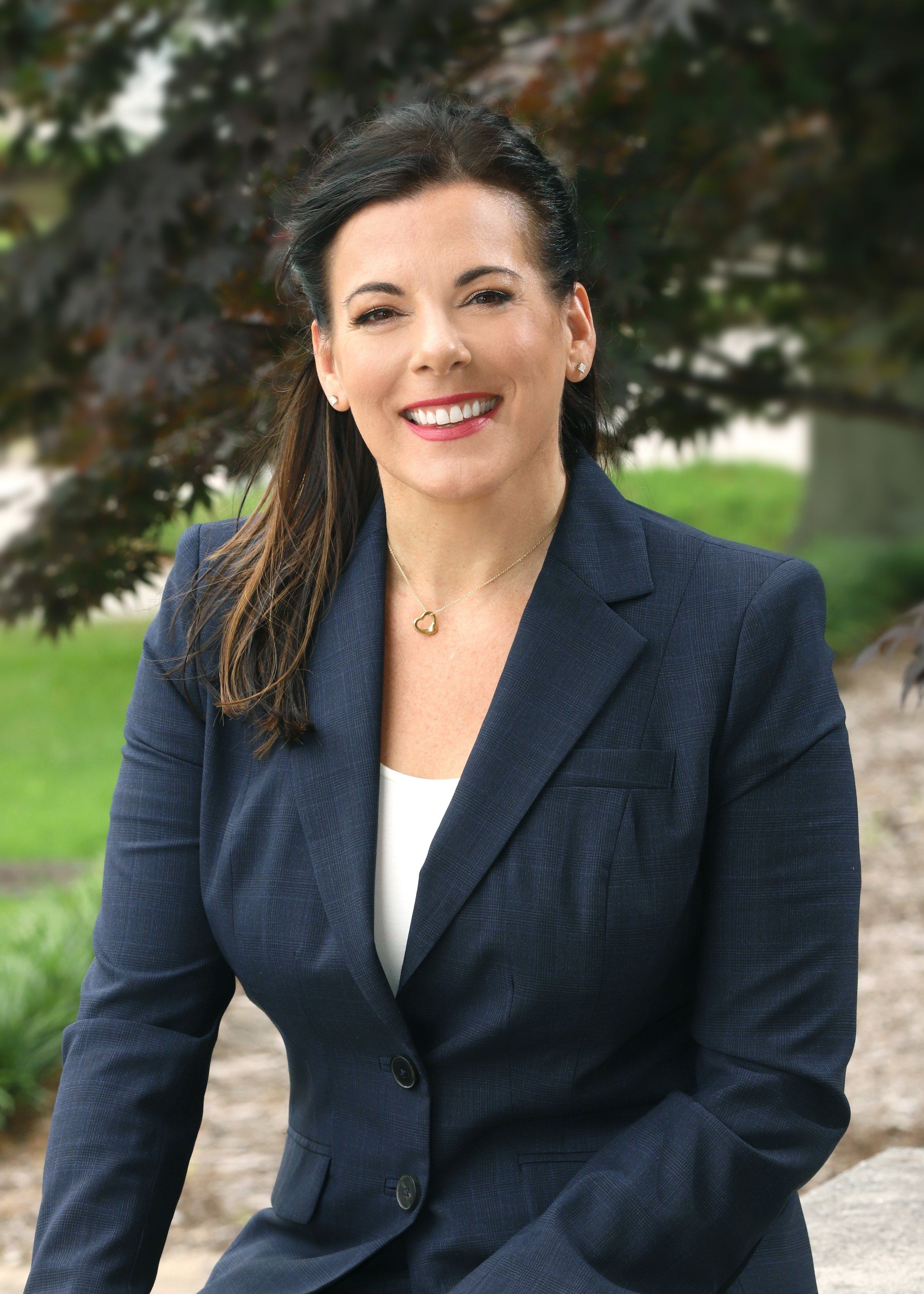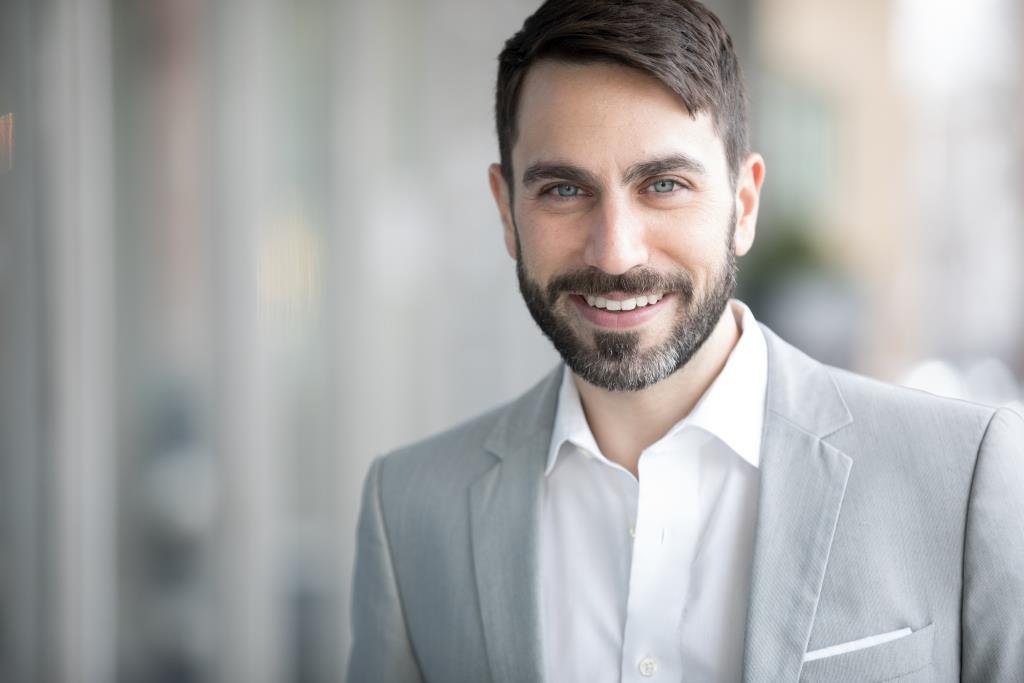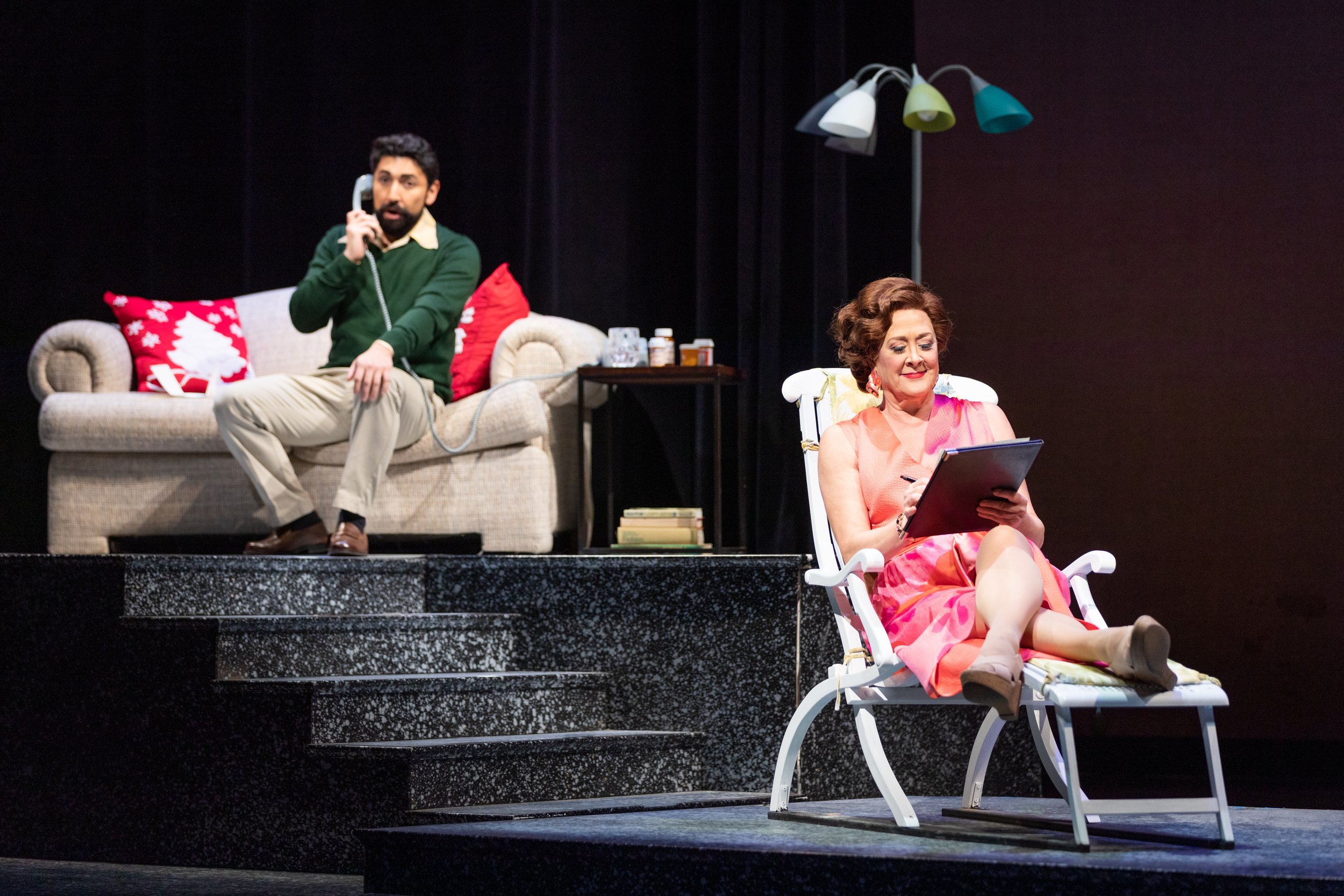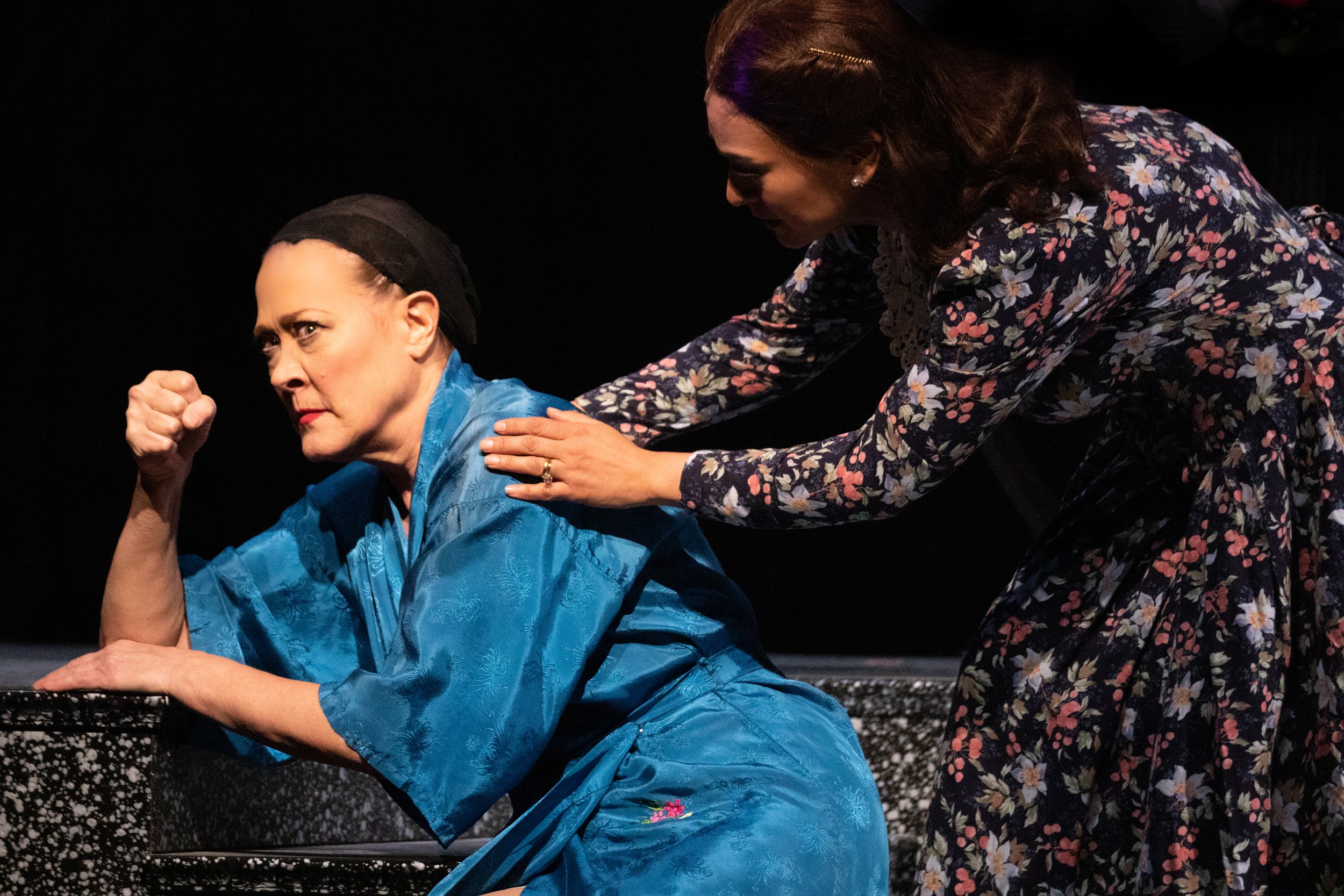Baltimore Concert Opera in collaboration with Opera Delaware has given its fans a tonic needed for battling the isolation and depression of two years with COVID-19, a fully staged with orchestra, laugh out loud funny, rendition of Rossini’s comedic opera, The Barber of Seville (1816, Il Barbiere di Siviglia). Sunday’s performance at Towson University was the funniest opera I have ever seen, by far, and it still managed to involve me in the story…all that merged with and facilitated by Rossini’s glorious music live. It was a performance I will long remember, not like any other Barber I have seen. And when was the last time an opera company presented a professional fully staged opera in the Baltimore area? And when has BCO ever produced a fully staged opera? This one works on all levels to support the comedy, including set, costumes, lighting/projections, staging, singing and music; even the venue contributed. This production now moves to Opera Delaware in Wilmington’s Grand Opera House for two performances this coming weekend.
Christopher Bozeka (left) as Count Almavira and Brian James Myer (right) as Figaro in The Barber of Seville. Photo by Britt Olsen-Ecker and courtesy of Baltimore Concert Opera.
In composer Gioachino Rossini’s and librettist Cesare Sterbini’s plot for this opera buffa, Count Almavira has fallen in love with young maid Rosina and pretends to be a poor student Lindoro to win her heart without the influence of his wealth and position. Rosina returns his infatuation, but she is the ward of Dr. Bartolo who is keeping her secluded in his home with plans to wed her himself, against her will. Figaro, a barber, fixer, and arranger of all things in 18th century Spain undertakes helping Count Almavira secure the hand of Rosina, while keeping his identity secret until their marriage is secured. Dr. Bartolo is assisted in his plot by the unashamedly mercenary music teacher Don Basilio. Disguises and comedic plots come and go until our two young lovers are united with a happy ending for everyone, except Dr. Bartolo. In this performance, the serious themes of human character flaws and the stacked deck of societal mores are dealt with authentically in the commedia dell’arte manner of exposing them and making fun of them. The opera was composed when Rossini was 24 years old, in his early period when he mainly composed comedies and ascended to greatness. The Barber of Seville is consistently on the list of the ten most often performed operas worldwide. The plot is based on a play by Beaumarchais, part of a trilogy; we meet Count Almavira and Figaro again in Mozart’s The Marriage of Figaro, based on another member of the trilogy.
Mary Beth Nelson as Rosina. Photo by Britt Olsen-Ecker and courtesy of Baltimore Concert Opera.
Let me begin my report with the music, an aspect of this production that should be emphasized. There was familiar applause as award winning Conductor Anthony Barrese, well known to BCO/Opera Delaware audiences, made his entrance to the podium. When I heard the first notes coming from the Opera Delaware Orchestra, my spirits jumped about fifty points on the spirit scale; it is so good to hear music live once more, and what could be more thrilling than hearing Rossini’s overture for this opera. Kudos to Maestro Barrese and his 34 players for bringing Rossini’s magnificent music to life, so nourishing for the soul. In the 2015-16 season Mr. Barrese led a “Return of Rossini” festival for Opera Southwest. He stated that he wanted to make this production as authentically Rossini as possible; for that for he returned to Rossini’s original score. Thus, he chose to include Count Almavira’s final aria that has often been cut in previous productions, and he does allow the singers freedom to display their individual virtuosity as would have been done in Rossini’s day. After a stirring beginning on its own, the music playing became tightly integrated into the fabric of the opera, always there to be enjoyed and yet a critical part of something larger, building on itself from beginning to end. This is an opera for the lovers of tune-filled opera. Take one of your friends who hasn’t seen an opera before to this one.
Comedy, especially in opera, is difficult to execute effectively. It requires timing, appropriate framing, an element of surprise, and preparation of the audience to receive it as intended. Kudos to Director Octavio Cardenas for a huge success in this endeavor. The minimal sets were constructed of colorful mobile designs giving the production a bright, happy feeling one might get from watching a marionette show. Papermoon Opera Productions is credited for scenic design, lighting, projections, costumes, wigs and make up. The mobile sets also, especially in the moderate-sized Stephens Hall at Towson University, gave me a feeling of watching a traveling troupe of players who had stopped to display their wares, thus creating a story within a story, and causing us to develop a relationship with the players playing the characters, not just the charcters themselves, and somehow then, their jokes became inside jokes for the audience. The jokes started early with mocking gestures and sounds such as one character repeating what another said in falsetto voice. Every character represents recognizable human failings and contributed to the comedy and the laughter in the audience built from a few instances to almost constant laughter near the end. This building of momentum allowed the jokes to get more and more outrageous as time went by and still be accepted by the audience. The humor is always cleverly contributed to and sometimes led by Rossini’s music. By the end, the lighting effects and projections were adding their own stand out comic touches, and there were a couple of opera shockers. Think of it as a Marx brothers movie set to classical music. Still, we are relieved in the end that true love rules the day, and the good guys win.
Timothy Mix (left) as Dr. Bartolo and Kevin Short (right) as Don Basilio. Photo by Britt Olsen-Ecker and courtesy of Baltimore Concert Opera.
BCO Artistic and General Director Julia Cooke stated in her opening remarks that “this is the most historically informed production I've ever heard.” I had to challenge that in as much as at one point, Dr.Bartolo began channeling Tom Jones by beginning to sing “It’s Not Unusual”! She responded,” Let me explain: Maestro Barrese is a Rossini scholar who has spent years researching Rossini, his writings, and original scores. His approach was to "scrape the barnacles off" of the performance practices which have essentially been passed down through generations but have not necessarily kept Rossini's original musical intentions in mind. The thing that the audiences didn't know is that each performance of this production is different because Maestro has encouraged the singers to improvise in certain sections, just as singers would have in Rossini's day. One sort of improvisation in that time would have been to reference other contemporary music, thus, the Tom Jones reference in our modern day production. In that scene, Dr. Bartolo refers to music having been "better in my day," and so far, I haven't heard Tim Mix (Dr. Bartolo) do the scene the same way through all the rehearsals and performances! Yesterday was the first outing of Tom Jones, and I can't wait to see what tunes he'll pick for next weekend’s performances!”
BCO/Opera Delaware assembled an excellent cast for this production, beginning with tenor Christopher Bozeka as Count Almavira, a role he performed in Wolf Trap Opera’s 2019 Barber. His performance seemed a little cool in the beginning, especially contrasted with Brian James Myer’s booming Figaro, but Mr. Bozeka grew stronger as he got deeper into the action, and his singing of the aforementioned final aria for Count Almavira was one of the standout moments of the production. His comedic expression grew stronger as well. Baritone Myer was certainly a crowd pleaser. His big aria, “Largo al factotum” – think Figaro, Figaro, Figaro – drew huge applause. He continued a strong performance throughout the opera, especially with rapid patter singing required in several scenes. Mezzo-soprano Mary Beth Nelson as Rosina plays her role in marionette-like fashion, almost always a bright smiling painted face turned to the audience. She quickly won me over with both her singing and her comedic acumen, consistent throughout the performance. Baritone Timothy Mix presents a dilemna. Dr. Bartolo is a devious and overbearing lech, and we should feel threatened by him. However, with his flair for comedy, Mr. Mix makes him enjoyable and almost likeable, and his patter singing was a treat. I also had an issue with bass-baritone Kevin Short as music teacher Don Basilio. I see Basilio as supercilious and effete, but while Mr. Short displayed a level of buffoonery that contributed to the comedy, his powerful stage presences and voice made me want to see him in another role, say Mephistopheles in Faust. Comedy, like beauty, is in the eye of the beholder. Also contributing to the performance was young soprano Julia Laird as Berta, Dr. Bartolo’s long suffering maid to whom Rossini gives her own aria, well done by Ms. Laird. Baritone Zachary Bryant contributed a respectable Fiorello in the opening scene.
Julia Laird as Berta. Photo by Britt Olsen-Ecker and courtesy of Baltimore Concert Opera.
A special feature of Rossini music, like Mozart music, is the choral and ensemble numbers, duets, trios, quartets, quintets, and sextets; together they almost equal the time Rossini allotts to arias. The solo singers singing in ensembles were a highlight of this performance, and the chorus sounded beautiful, truly impressive throughout; I took note of it when they first appeared on stage. Kudos to Chorus Master Aurelien Eulert.
So, when was the last time a professional opera company presented a fully staged opera in the Baltimore area? It was 2016 when Lyric Opera Baltimore performed Romeo and Juliet before sadly closing its doors forever. For its performances this past weekend, BCO sold out the main floor of Stephens Hall, close to 500 patrons per performance and could have been more; the balcony was reserved for necessary lighting, projection, and sound equipment; seating there was also held in reserve in case the threatening situation with Omicron necessitated social distance seating. And when has BCO ever produced a fully staged opera before? Never, but it won’t be the last one. Director Cooke says that BCO plans to include a fully staged production in each season going forward. What will the next one be and when will it take place? We will have to wait a little while longer for the 2022-2023 season announcement. For the moment, I am willing to bet that every attendee Sunday afternoon went home with a smile on their face, a chuckle under their breath, and warmth in their heart. Step by step, Baltimore Concert Opera is brightening the future of opera in Baltimore.
The Fan Experience: Baltimore Concert Opera held performances of The Barber of Seville on February 18 and 20, its first ever fully staged production of an opera. This production now moves to the venue of BCO’s co-producer, Opera Delaware, for performances on February 25 and 27; tickets remain available for those performances. The opera is sung in Italian with projected English supertitles. OD vaccination and masking policy for Opera Delaware can be found at this link.
BCO offers ticket holders access to four lectures on an upcoming opera by their Scholar-In-Residence, Dr. Aaron Ziegel, Associate Professor of Music History and Culture at Towson University. Dr. Ziegel’s lectures offer a deep dive into the opera itself and insights into the elements of opera and opera history during the period in which the opera was composed. I have found them to be both entertaining and highly informative. Dr. Ziegel recommends reading the opera libretto before attending a performance. For an opera as fast paced and complex as Rossini’s The Barber of Seville, it is especially helpful, or at least read the opera synopsis beforehand. He also provided a pre-opera talk on video for this production. The lectures are also available to Opera Delaware ticket holders.
The educational lectures are just one of the ways that BCO takes care of its patrons. I received multiple messages from BCO prior to the performances reminding me of the date, directions to the venue, parking availability, how to get from the parking lot to theater, informational material, and how to access lectures. I even got a phone message the morning of the performance reminding me of the company’s vaccination and masking policy. All this was very helpful in reducing the anxiety in attending opera. I might add they are very concerned for the health of their patrons. Director Cooke stated that “We had meetings upon meetings with our medical advisors, and staffs and boards of both companies, and we paid very close attention to science news. Ultimately, with our vaccination policy for artists and guests, and masking, we were able to maintain a normal approach to seating on the main level.”
Artistic and General Director Julia Cooke. Photo courtesy of Baltimore Concert Opera.
For opera fans in Baltimore I am including this statement received from Artistic and General Director Cooke by email in response to my many questions:
“Our goal is to keep fully staged productions as part of our seasons, in addition to the wonderful concert operas, Thirsty Thursdays at the Opera series, and outreach and education programming. I am currently working on a plan for a fully staged co-production for the 2022-2023 season, along with our traditional offerings. Truth be told: this is truly up to our community and our funders. Obviously, we had a great deal of interest in this first one, with two performances to full houses in a theater more than twice the size of anything we have sold before, and in a pandemic. This indicates to me that Baltimore is ready for the return of fully staged opera, and BCO is absolutely ready to serve in that capacity. We plan to forge ahead with our new model and will ask our community of supporters to invest in BCO so we can continue to bring high quality opera of every ilk to our audiences. Our vision to Build Community through Opera and our success in doing so for 13 years, is the key to our future. Putting on great performances is only the tip of the iceberg. We are dedicated to our people, and in turn, hope they are equally dedicated to us. We believe that BCO's success is Baltimore's success!”


